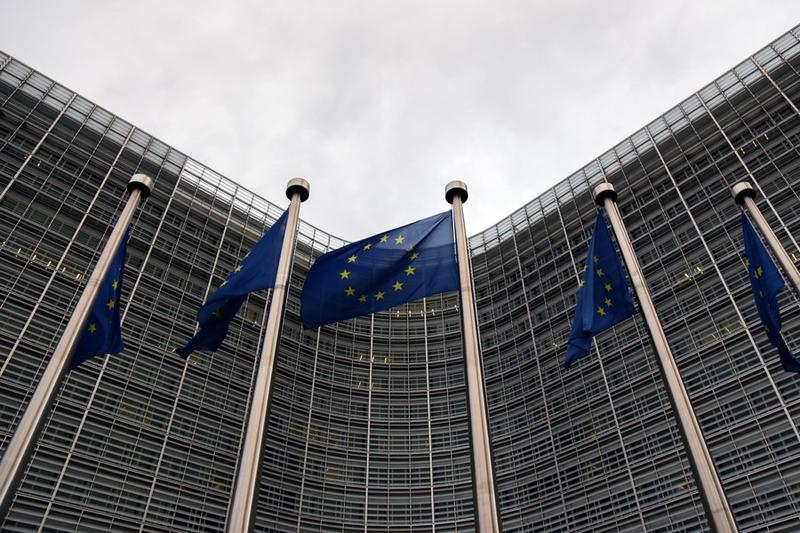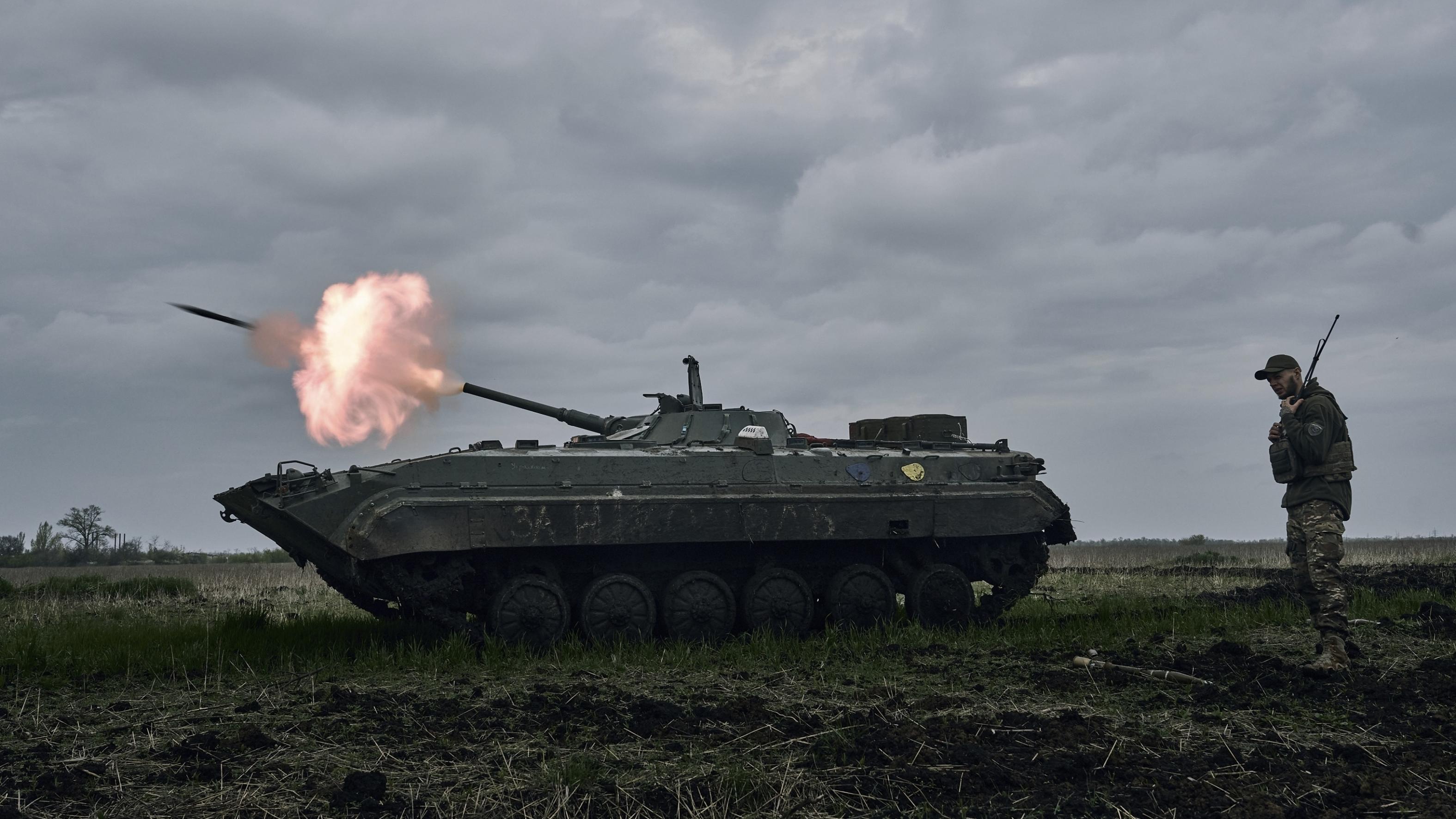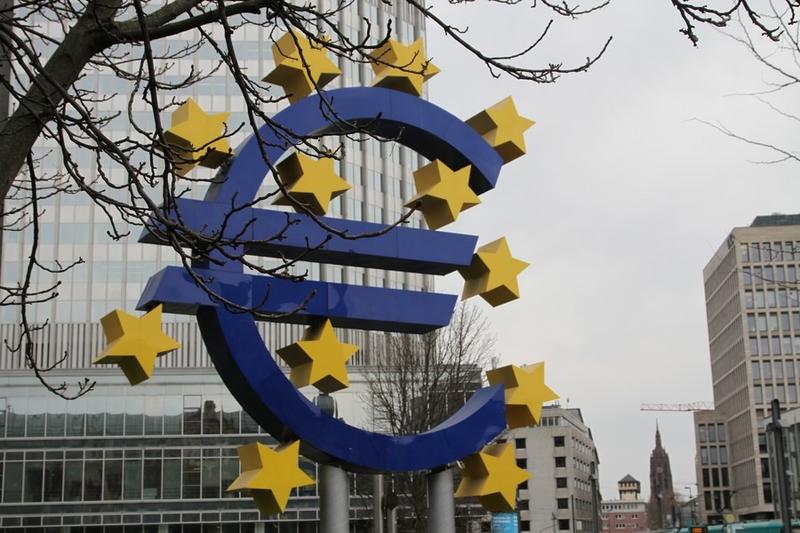 In this Jan 6, 2023 photo, EU flags are seen outside the European Commission in Brussels, Belgium. (PHOTO / XINHUA)
In this Jan 6, 2023 photo, EU flags are seen outside the European Commission in Brussels, Belgium. (PHOTO / XINHUA)
PRAGUE – More than two decades after Western Balkan countries embarked on their journey of accession to the European Union, their progress remains slow.
"We – and I include here Serbia, Bosnia and Herzegovina, Montenegro, North Macedonia and Albania – remain as a kind of hole in the middle of the EU. Because only when you leave Serbia do you see that there are no more borders in the EU, and that we are the ones who are surrounded by walls," Slobodan, a 52-year-old resident of Serbia's capital Belgrade, said.
"I would like my country to join (the EU), but I am skeptical that it will happen soon," he said, lamenting the bloc's lack of political will to expand and the lengthy waiting time.
Enlargement stagnation
Starting with six founding members in 1951, the EU has witnessed several rounds of enlargement, multiplying its membership nearly five times to become the current 27-member club. It officially declared the Western Balkan states potential candidates for membership in June 2003 following the EU-Western Balkans summit in Thessaloniki, Greece. However, no country has joined the bloc since 2013, when Croatia joined.
READ MORE: 2030 mooted as enlargement deadline for EU
EU enlargement is the process whereby states join the bloc after they have fulfilled a set of political and economic conditions. Currently, nine countries, including the above-mentioned five Western Balkan nations, have candidate status – the first major step toward EU accession. However, each follows different processes of rapprochement with the EU.
The EU's drive for expansion has gained momentum in the wake of the Russia-Ukraine conflict
One typical case here is North Macedonia, which had been an EU candidate for more than 17 years before its accession negotiations were launched last year. Previously, the country had been unable to enter the negotiations due to blocking from EU member countries over various disagreements.
According to the EU's enlargement policy, the opening of formal accession talks requires the unanimous agreement of all member states that all requirements have been met.
Even if candidate countries have managed to open accession talks with the EU, the negotiations could be complex and frustrating.
Serbia and Montenegro both started their accession talks some 10 years ago, but they have seen little progress in their membership bids, which analysts have attributed to the EU's reluctance to advance and to the hard reforms the candidate countries must undertake.
"The EU members do not agree on whether to continue the enlargement process. Declaratively, it is constantly said that the EU should expand to the Western Balkans, but in practice, this is not supported by several large and important countries," Mark Cigoj, a Croatian political analyst, told Xinhua.
 In this April 28, 2023 photo, a Ukrainian APC fires towards Russian positions near Avdiivka, in the Donetsk region, Ukraine. (PHOTO / AP)
In this April 28, 2023 photo, a Ukrainian APC fires towards Russian positions near Avdiivka, in the Donetsk region, Ukraine. (PHOTO / AP)
New momentum
In the wake of the Russia-Ukraine conflict, the EU's drive for expansion has gained momentum.
The membership bids of most Western Balkan countries have once again been brought to the forefront of the agenda after years of stagnation.
The EU granted Ukraine and Moldova candidate status in June last year, and in December 2022, BiH became the fifth Balkan nation to be given candidate status.
READ MORE: EU agrees to open accession talks with Ukraine, Moldova
Debates on enlargement have intensified this year, with EU leaders multiplying meetings with countries knocking on the bloc's door.
In a declaration adopted after an informal summit this October in Granada, Spain, the EU leaders underlined that enlargement "is a geo-strategic investment in peace, security, stability and prosperity," noting that "the future of our aspiring members and their citizens lies within the European Union."
At their December summit, the EU leaders agreed to open accession negotiations with Ukraine and Moldova. They also granted Georgia candidate country status, and agreed to open accession negotiations with BiH once the necessary degree of compliance with the membership criteria is achieved.
However, there has been internal discord as the agreement to open Ukraine's accession talks was not unanimous.
The EU bypassed Hungarian Prime Minister Viktor Orban's objections by getting him to leave the room.
Professor Iain Begg from the London School of Economics and Political Science told Xinhua that the Russia-Ukraine conflict and the effort to assist Ukraine have become major political factors in the decision on whether or not Ukraine should lead the way for new members coming into the EU.
"For the time being, it seems to transcend usual procedures of assessing the country's worth and whether it's got a strong enough case to become a member. So, that's going to play out both between the European level and candidate countries and between the European level and the member states of the EU," he said.
 This photo taken on Feb 24, 2023 shows the Euro sculpture in Frankfurt, Germany. (PHOTO / XINHUA)
This photo taken on Feb 24, 2023 shows the Euro sculpture in Frankfurt, Germany. (PHOTO / XINHUA)
Multiple challenges
Given the new momentum, the EU is facing many "delicate political challenges" to push enlargement forward. A persistent question is how to incorporate new members without undermining the bloc's efficiency and development.
There's concern that applicant states might absorb a substantial share of the EU cohesion funds shortly after joining.
For the time being, it seems to transcend usual procedures of assessing the country's worth and whether it's got a strong enough case to become a member.
Iain Begg, Professor, London School of Economics and Political Science
Public opinions are also divided on the benefits of EU enlargement. A survey of six EU countries released earlier this month by the European Council on Foreign Relations think tank showed that there is no clear majority support for any of the current candidate countries joining the bloc soon.
For a further enlarged bloc, both the EU and future member states need to be ready. Aspiring members need to step up their reform efforts, but the complexity of the EU accession process itself poses a challenge in the first place.
Starting negotiations is not necessarily a recipe for membership as there are various hurdles to be cleared before they conclude an agreement.
ALSO READ: EU divided on Ukraine, Gaza at key summit
The EU also has its own homework to do. How to reform the EU institutions to ensure they continue to function effectively? And how to reform the voting patterns to ensure that there is more flexibility in decision-making? Neither will be easy.
"Over the next decade, I think we'll see a difficult set of negotiations. Some are already underway, some depend on particular things being met, and some will depend on perceptions in EU member states, like, is it going to cost us too much? All these things are components of the very complicated jigsaw that has to be put together to make enlargement possible," Begg said.


